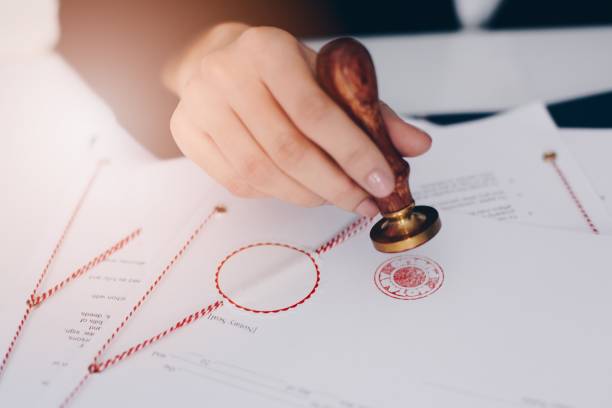Notarizing an acknowledgment is a crucial process in legal and business transactions. Whether it’s for real estate documents, contracts, or affidavits, this process verifies that the signer acknowledges their signature willingly and understands the document’s contents. In this article, we will guide you through the steps involved in notarizing acknowledgment in Las Vegas NV, its importance, and answer some frequently asked questions.
What is an Acknowledgment in Notarization?
An acknowledgment is a notarial act where a person signing a document declares that they have signed it voluntarily and with full understanding of its contents. The notary public then verifies the identity of the signer and ensures that they are signing willingly without any form of coercion.
The Importance of Notarizing an Acknowledgment
Acknowledgments serve as proof that a signature is genuine and that the signer was fully aware of the document they signed. This is critical in avoiding fraudulent claims and ensuring legal validation for documents such as deeds, powers of attorney, and various legal contracts.
Steps to Notarize an Acknowledgment
Prepare the Document: Ensure the document that requires notarization is completed. The signer must be present for the acknowledgment.
Identify the Signer: The notary will ask the signer to present a valid form of identification, such as a driver’s license or passport. This is to confirm the identity of the signer.
Check Willingness and Understanding: The notary will ask the signer if they are signing the document voluntarily and if they fully understand its contents. This step ensures that no coercion is involved.
Sign in Front of the Notary: Unlike some notarial acts, the document does not need to be signed in the presence of the notary. However, the signer must appear before the notary to confirm that the signature on the document is theirs.
Notary’s Certificate: The notary will complete a certificate, commonly called an “acknowledgment certificate,” which affirms that the notary has witnessed the acknowledgment.
Notary Seal and Signature: The notary will apply their official seal or stamp on the certificate, making the notarization legally valid.
Key Differences Between Acknowledgment and Jurat
It’s important to distinguish between an acknowledgment and a jurat. In an acknowledgment, the notary verifies the signer’s identity and willingness to sign, but the signer doesn’t need to sign in the notary’s presence. In a jurat, the document must be signed in front of the notary, and the signer must swear or affirm that the information in the document is true.
Documents That Often Require an Acknowledgment
Real estate deeds
Powers of attorney
Loan agreements
Affidavits
Trusts and wills
Benefits of Notarizing an Acknowledgment
Legal Protection: The notarized document provides legal security and reduces the risk of disputes.
Fraud Prevention: Notarization ensures that the signer’s identity is verified and that they are not being coerced.
Document Integrity: The document’s authenticity is preserved, and the chances of forgery are minimized.
FAQs
Do I need to sign the document in front of the notary?
No, you do not need to sign the document in the notary’s presence for an acknowledgment, but you must personally appear before the notary to confirm that the signature is yours.
What forms of ID are acceptable for notarization?
The notary will typically accept government-issued identification, such as a passport, driver’s license, or state ID, provided it includes a photo and is current.
Can a notary refuse to notarize a document?
Yes, a notary can refuse to notarize if they suspect fraud, the signer lacks proper identification, or if the signer appears to be under duress or does not understand the document.
How long does notarization of an acknowledgment take?
The process is generally quick, typically taking no more than 10-15 minutes, depending on the document’s complexity and the notary’s verification process.
Is notarization required by law?
While not every document requires notarization, many legal documents, such as deeds and powers of attorney, must be notarized to be considered valid.
Conclusion
Best notarizing acknowledgment is a vital step in verifying the legitimacy of important legal documents. By following the proper procedure, you can ensure that your document is legally valid and protected from future disputes. Always seek out a certified and experienced notary to guide you through the process and ensure compliance with your state’s legal requirements.


